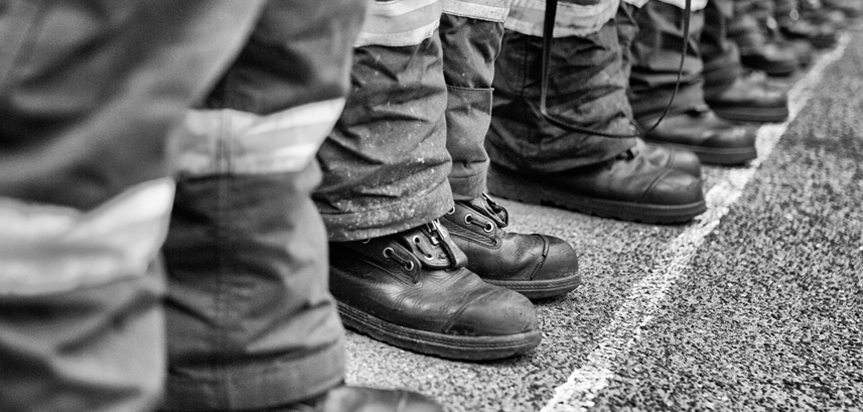In a rapidly changing job market, continuous learning is essential for staying ahead and ensuring career stability.
Expanding Skill Sets for Career Growth
Expanding your skill sets is crucial for career growth and future-proofing your career. As industries evolve and technology advances, new skills become necessary to stay relevant and competitive in the job market. By continuously learning and acquiring new skills, you can position yourself as a valuable asset to employers and increase your chances of career advancement.
One way to expand your skill sets is by taking courses or attending workshops related to your field of interest. These learning opportunities can provide you with the knowledge and expertise needed to excel in your current role or pursue new career opportunities. Additionally, seeking out challenging projects or assignments at work can help you develop new skills and broaden your professional capabilities.
Continuous learning also enables you to adapt to changing job requirements. As technology continues to reshape industries, certain skills may become obsolete while new ones become in-demand. By actively seeking to expand your skill sets, you can ensure that you remain relevant and adaptable in a rapidly evolving job market.
Expanding your skill sets not only benefits your career growth but also enhances your job satisfaction. Learning new things and acquiring new skills can bring a sense of fulfillment and personal growth. It can also make your work more interesting and engaging, leading to higher job satisfaction and motivation.
Understanding the Importance of Continuous Learning
Continuous learning is essential for maintaining career stability and staying ahead in today’s dynamic job market. In the past, a college degree or a specific set of skills may have been sufficient to secure a stable job. However, with the rapid pace of technological advancements and industry disruptions, the value of continuous learning has significantly increased.
By continuously learning, you can keep up with the latest industry trends, developments, and best practices. This knowledge allows you to adapt to changing work environments, take advantage of emerging opportunities, and make informed decisions. It also demonstrates your commitment to personal and professional growth, which can make you a more attractive candidate to employers.
Continuous learning also helps you stay competitive in your field. As new technologies and techniques emerge, those who are willing to learn and embrace them will have a distinct advantage over those who resist change. Employers are increasingly seeking candidates who are adaptable, curious, and eager to learn, as these qualities contribute to innovation and organizational success.
Moreover, continuous learning can open doors to new career opportunities. By expanding your knowledge and skill sets, you may qualify for positions that were previously out of reach. It can also help you transition to new industries or roles, allowing for career growth and increased job satisfaction.
Overall, understanding the importance of continuous learning is key to future-proofing your career. By investing in your own development and staying curious, you can navigate the ever-changing job market with confidence and ensure long-term career stability.
Staying Current with Evolving Technological Trends
In today’s fast-paced and technology-driven world, staying current with evolving technological trends is essential for future-proofing your career. Technology has become deeply embedded in almost every industry, and those who fail to keep up with advancements risk being left behind.
By staying current with evolving technological trends, you can gain a competitive edge and remain relevant in your field. This involves staying informed about emerging technologies, understanding their potential impact on your industry, and acquiring the necessary skills to leverage them effectively.
There are various ways to stay current with evolving technological trends. Following industry publications, attending conferences and webinars, and participating in professional networking events can provide valuable insights into the latest developments. Additionally, online courses and certifications can help you acquire new skills and stay up to date with emerging technologies.
Staying current with evolving technological trends also demonstrates your commitment to professional growth and adaptability. It shows employers that you are proactive in keeping your skills relevant and that you are capable of embracing new technologies and leveraging them to drive innovation.
By actively staying informed and continuously learning about evolving technological trends, you can position yourself as a valuable asset in the job market and ensure career stability in an increasingly digital world.
Networking and Building Professional Relationships
Networking and building professional relationships are crucial for future-proofing your career. In today’s interconnected world, who you know can often be as important as what you know. Building a strong professional network can open doors to new opportunities, provide valuable insights and advice, and help you stay informed about industry trends and developments.
Networking can take various forms, including attending industry events, joining professional associations, and participating in online communities. It is important to approach networking with a genuine intent to build mutually beneficial relationships rather than just seeking immediate benefits. Building trust and rapport with others in your industry can lead to referrals, collaborations, and new career opportunities.
Professional relationships also provide a support system and a platform for learning and growth. Engaging with like-minded professionals can expose you to different perspectives, ideas, and knowledge. It can also serve as a source of inspiration and motivation, especially during challenging times.
In addition, networking can help you stay up to date with industry trends and advancements. By connecting with professionals in your field, you can gain valuable insights into emerging opportunities and stay informed about the skills and expertise that are in demand.
Overall, networking and building professional relationships are essential for future-proofing your career. By investing time and effort into nurturing connections with others, you can create a strong foundation for long-term career success.
Embracing Lifelong Learning
Embracing lifelong learning is a mindset that is crucial for future-proofing your career. It involves a commitment to continuous personal and professional growth, regardless of your age or career stage. Lifelong learners are curious, adaptable, and open to new experiences, which are qualities highly valued in today’s rapidly changing job market.
Lifelong learning goes beyond formal education and extends into all aspects of life. It can include reading books, attending workshops, taking online courses, seeking mentorship, or even learning from everyday experiences. The key is to maintain a thirst for knowledge and a willingness to learn and grow.
By embracing lifelong learning, you can stay relevant and adaptable in a rapidly evolving job market. As industries transform and new technologies emerge, those who are receptive to learning and acquiring new skills will have a distinct advantage. Lifelong learners are more likely to embrace change, take on new challenges, and seize opportunities for growth and advancement.
Moreover, embracing lifelong learning can enhance personal fulfillment and satisfaction. Learning new things and acquiring new skills can bring a sense of accomplishment, broaden your perspectives, and contribute to personal growth. It can also help you maintain a sense of purpose and engagement in your career.
In conclusion, embracing lifelong learning is essential for future-proofing your career. By adopting a mindset of continuous growth and learning, you can navigate the ever-changing job market with confidence, adaptability, and a commitment to personal and professional development.


